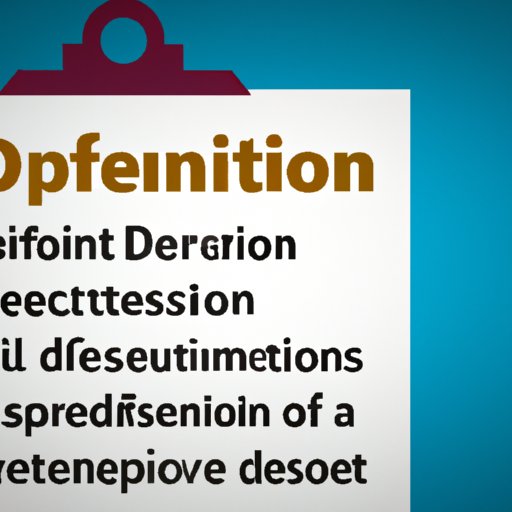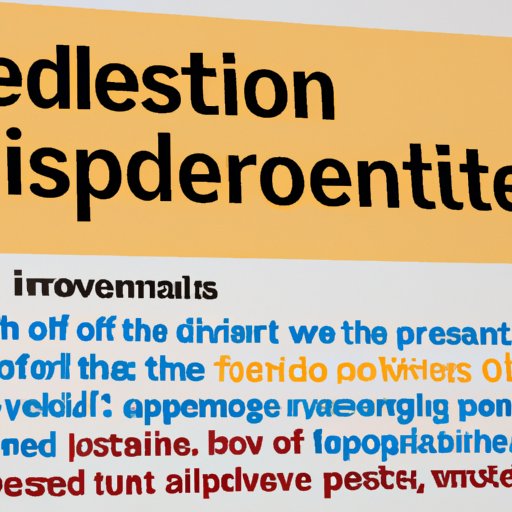Introduction
Debtor in possession (DIP) financing is a form of secured debt that is provided to companies facing financial distress, such as bankruptcy. It is designed to provide short-term financing to help businesses remain operational while they restructure their finances. Debtor in possession financing is an important tool for businesses struggling with cash flow issues and can be a lifeline for those in need of immediate funds.

The Basics of Debtor in Possession Financing
When a company faces a financial crisis, one option available to them is debtor in possession financing. This form of financing is provided by lenders who are willing to take on the risk of lending money to a struggling business. The lender will typically require collateral in the form of assets or future income, which will serve as security against the loan.
The benefits of debtor in possession financing include access to funds that can help keep a business running, reduced interest rates and flexible repayment terms. However, it is important to note that there are risks associated with DIP financing, including the potential for the lender to seize the company’s assets if the loan is not repaid. Additionally, there are eligibility requirements that must be met in order to qualify for DIP financing, making it important to carefully assess your needs before applying.
Debtor in Possession Financing: A Guide for Small Business Owners
For small business owners, understanding the different types of debtor in possession financing available can be helpful in determining which is best for their needs. There are several types of DIP financing, including asset-based loans, accounts receivable financing, and factoring. Each has its own pros and cons, so it is important to do your research and understand the terms and conditions of each before making a decision.
When applying for debtor in possession financing, it is important to be prepared. You should have a clear understanding of your current financial situation, as well as your projected cash flow and expenses. Additionally, you should have a plan in place for how the loan will be used and how it will help your business. Lastly, you should shop around and compare different lenders to find the best deal.

Debtor in Possession Financing: What Businesses Should Consider
When considering debtor in possession financing, it is important to assess your needs and analyze your options. Start by assessing your financing needs, such as the amount of money needed, the length of time the loan is needed for, and the purpose of the loan. Then, analyze your options and compare different lenders to find the best deal for your business. Finally, understand the terms of the loan and make sure you are comfortable with them before signing any paperwork.

Navigating Debtor in Possession Financing: Making the Right Decision for Your Business
Making the right decision when it comes to debtor in possession financing is key to ensuring the success of your business. First, determine which type of financing is best suited to your needs. Second, consider working with a financial advisor who can help you make an informed decision. And finally, take action and apply for the loan that best meets your needs.
Conclusion
Debtor in possession financing can be a valuable tool for businesses facing financial hardship. By understanding the basics of DIP financing, assessing your financing needs, analyzing your options, and understanding the terms of the loan, you can make an informed decision and navigate this type of financing successfully. With the right approach, DIP financing can help keep your business afloat during challenging times.
(Note: Is this article not meeting your expectations? Do you have knowledge or insights to share? Unlock new opportunities and expand your reach by joining our authors team. Click Registration to join us and share your expertise with our readers.)
